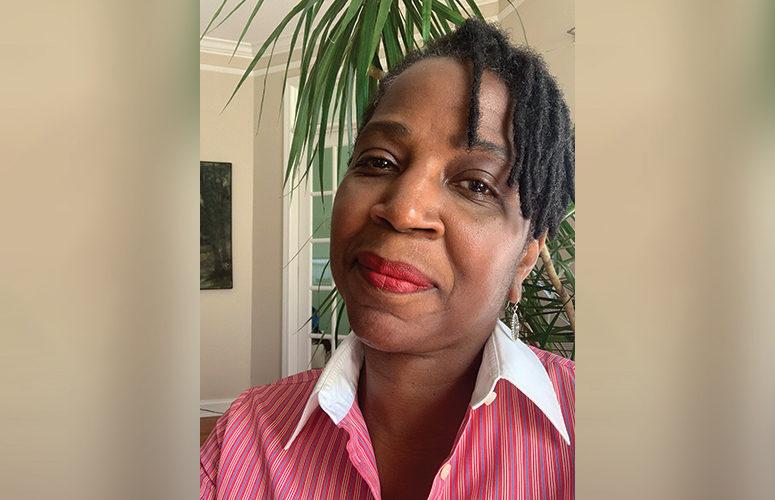
The Vibrancy of Newark’s Black-Owned Businesses
Black-owned businesses remain resilient in the midst of the coronavirus pandemic.
By George N. Saliba, Managing Editor On Sep 17, 2020Lyneir Richardson, assistant professor of professional practice at Rutgers Business School and executive director of its Center for Urban Entrepreneurship and Economic Development, says he is fascinated to see the level of resiliency and creativity of Black entrepreneurs in Newark right now.
“There are some phenomenal small success stories: [Individuals who own] a local clothing boutique, a local coffee shop, a local restaurant, and a service-oriented business who have become entrepreneurs by necessity because they have been laid off or furloughed from their jobs,” he says. “They have used the period of this pandemic and shutdown to form and imagine new ventures, and are able to get customers through Zoom calls.”
Richardson adds, “I also look to the Newark entrepreneurs who are operating in a city that is rapidly changing, [and they are] addressing social impact issues, but – at the same time – being unrelenting about generating a profit from their business enterprise.”
Black-owned Businesses’ Unique Experiences
The coronavirus pandemic, nationwide protests and their effects are within the context of a broader backdrop for Black-owned businesses not only in Newark but across the United States. Four owners interviewed by New Jersey Business magazine agree overall that being a Black business owner is a “unique experience.”
“I do believe Black entrepreneurship is a unique experience primarily because I think Black businesses, in particular, [hire] a worker related to: How do I make a profit, and how do I do good for my community at the same time?” Richardson comments.
He also says, “These business owners very often start with a lack of capital, largely because they are missing the friends and family round of early seed stage capital, which is related to systemic inequality in our country.”
Richardson relates that when he started a business years ago, people told him: “You’ve got to go to your friends and family – do a friends and family round. So, I went around to my friends and family and got a round of applause. They were supportive, but they didn’t have the ability to write a $50,000 or $100,000 check to get me started. All through the first decade of my entrepreneurship, I always felt like I was $60,000 short.”
It is an overall point that has been driven home by the New Jersey African American Chamber of Commerce, which has noted that many Black business owners in the Garden State are sole proprietors who may lack access to capital.
Offering additional insight into Black-owned businesses’ unique experience, President Ramelle J. Massey of Massey Insurance Agency on Lyons Avenue, says, “Segregation forced Black people to develop our own businesses. Entrepreneurship is interwoven in the fabric of the Black community because it has always been a way for us to advance. Corporate America has not readily accepted and promoted Blacks to senior levels, so being a business owner is a much-utilized alternative. We trust Black businesses and professionals to take care of us.”
A Dedication to Newark
When Massey Insurance Agency was first founded by Ramelle’s father, Raymond J. Massey in 1975, Newark was one of many major cities in the United States that was red-lined. Ramelle recalls, “This meant that insurance was not available or very expensive for the people who lived in that community.” Today, her agency offers insurance not only locally, but in multiple states. It is one of the insurance agents, for example, for the New Jersey Performing Arts Center among other notable names.
Both Ramelle Massey and her mother Emma A. Massey, who is vice president at the agency, recall how they were once advised that they could further advance their insurance agency by leaving Newark. Ramelle says, “Because we are well-known, well-respected and have been in business for 45 years, we [had] been told that it would be a good idea to leave Newark. That we would be better served, we could advance [and] we could become millionaires, if we were to leave Newark.
“[But] we are steadfast to stay in Newark. We are here for a reason: To serve our community. We employ people who work in Newark. We support the City of Newark. We are a cornerstone in the City of Newark.”
Separately, Brantley Brothers Moving & Storage Co., Inc. was founded in 1967 by two brothers – the grandfather and the great uncle of Austin King, who is sales representative and the head of business development at the company, which is now located at 116 Elizabeth Avenue.
It is important to note that 1967 was a year of civil unrest in Newark. In the aftermath of the Newark Rebellion, many companies left the city, but Brantley Brothers remained. With just a single Dodge truck, the company grew to become an operation with between 45 and 80 employees, depending on the season.
King today heralds the city’s business resurgence: “You see great companies here … you [also] see Rutgers University and the New Jersey Institute of Technology (NJIT). So, it’s a unique landscape for the City of Newark.”
He adds, “Newark used to become desolate after 5:00 p.m., but now, you are starting to see a live, work and play environment. That’s what we are building.”
Meanwhile, Laura Mashtaler, owner of Black Swan Espresso, LLC on Halsey Street, is also bullish on Newark, even in the midst of the COVID-19 pandemic. She notes that while the construction of buildings in the city has slowed somewhat in the wake of the health crisis, it has not stopped, and, additionally – in her conversations with some of the city’s CEOs – she has learned that plans for their businesses are likewise largely intact.
And while there may be fewer people in downtown Newark due to pandemic-related remote work arrangements and temporarily shuttered universities, she says, “As a businessperson, the question you need to ask yourself is: ‘When we recover, where will you be? How will you be positioned for the reopening?’”
She also says overall, “If you are doing well and you can survive it, sure, stay in business. But, if you are not sure, close it, come back later and reopen – reinvent yourself.”
She adds, “I just think that we have to have a positive outlook, and know that we will overcome. Because we will come out of this [pandemic]; it is just ‘how?’ The question is how to make each day a positive experience for everybody, this year.”
Black-owned businesses are part of a broad economic rebirth and revitalization in Newark, and many of them are committed not just to economic prosperity, but to bettering the communities which surround them.
To access more business news, visit NJB News Now.
Related Articles:





